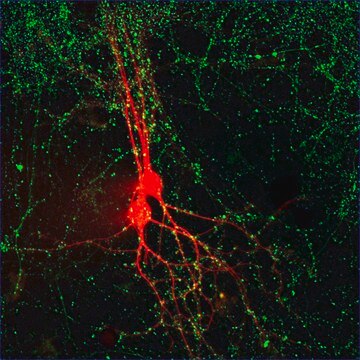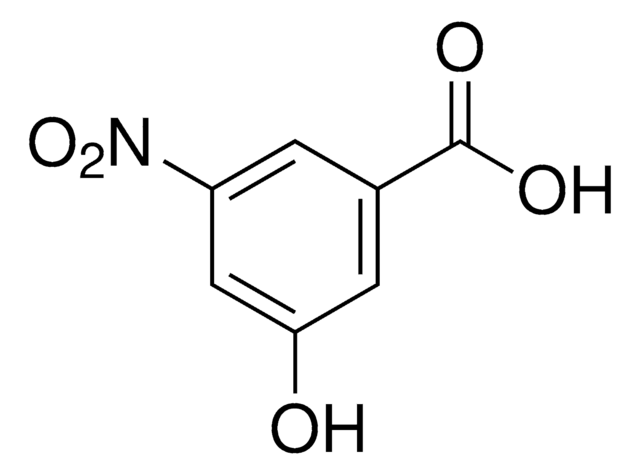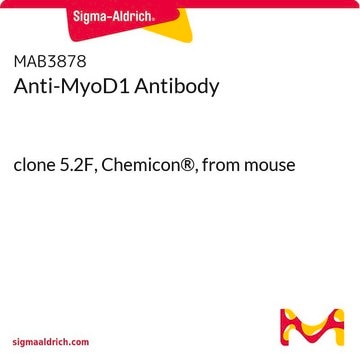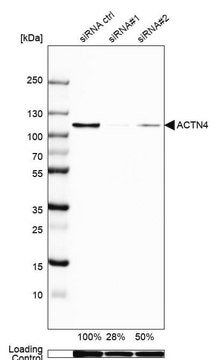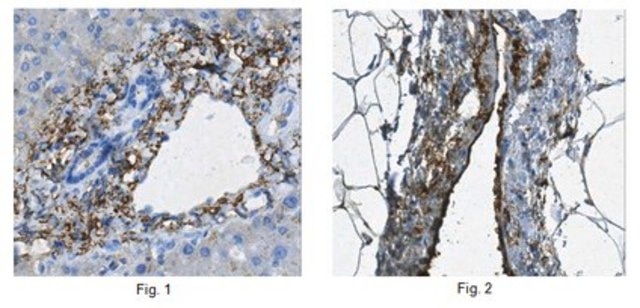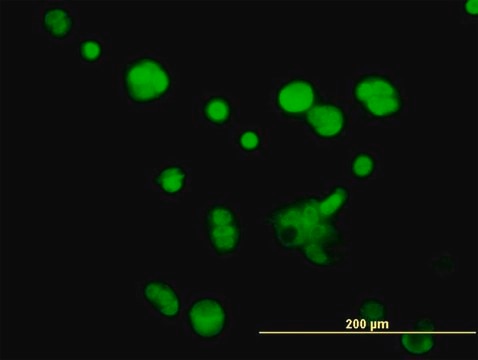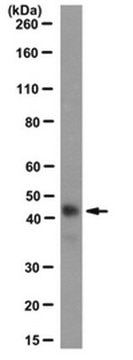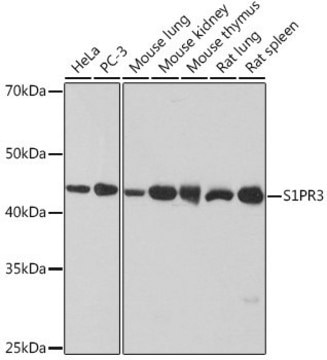ABC137
Anti-ATPIF1 Antibody
from rabbit, purified by affinity chromatography
Synonym(s):
ATPase inhibitor, mitochondrial, Inhibitor of F(1)F(o)-ATPase, IF(1), IF1, ATPIF1
About This Item
Recommended Products
biological source
rabbit
Quality Level
antibody form
affinity isolated antibody
antibody product type
primary antibodies
clone
polyclonal
purified by
affinity chromatography
species reactivity
human, mouse
technique(s)
immunocytochemistry: suitable
western blot: suitable
NCBI accession no.
UniProt accession no.
shipped in
wet ice
target post-translational modification
unmodified
Gene Information
human ... ATPIF1(93974)
Related Categories
General description
Immunogen
Application
Apoptosis & Cancer
Apoptosis - Additional
Immunocytochemistry Analysis: A 1:500 dilution from a representative lot detected ATPIF1 in HeLa, A431, and NIH/3T3 cells.
Quality
Western Blotting Analysis: 2.0 µg/mL of this antibody detected ATPIF1 in 10 µg of T47D cell lysate.
Target description
Physical form
Storage and Stability
Other Notes
Disclaimer
Not finding the right product?
Try our Product Selector Tool.
wgk_germany
WGK 1
flash_point_f
Not applicable
flash_point_c
Not applicable
Certificates of Analysis (COA)
Search for Certificates of Analysis (COA) by entering the products Lot/Batch Number. Lot and Batch Numbers can be found on a product’s label following the words ‘Lot’ or ‘Batch’.
Already Own This Product?
Find documentation for the products that you have recently purchased in the Document Library.
Our team of scientists has experience in all areas of research including Life Science, Material Science, Chemical Synthesis, Chromatography, Analytical and many others.
Contact Technical Service